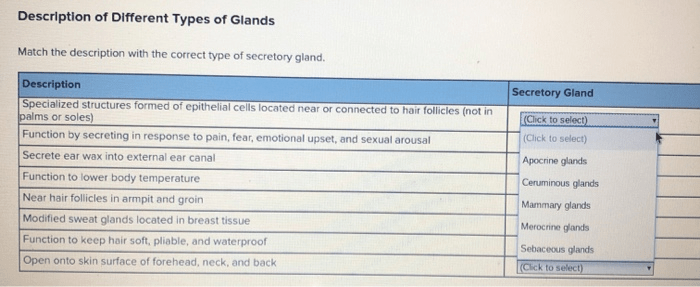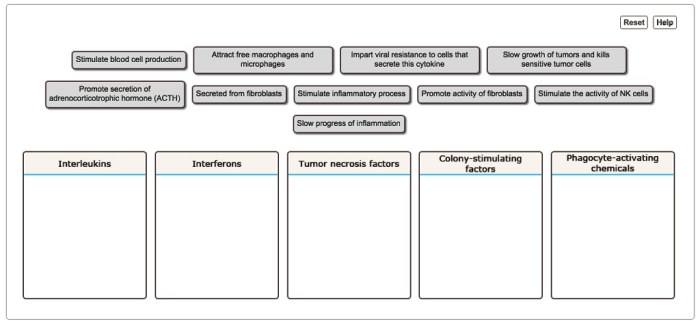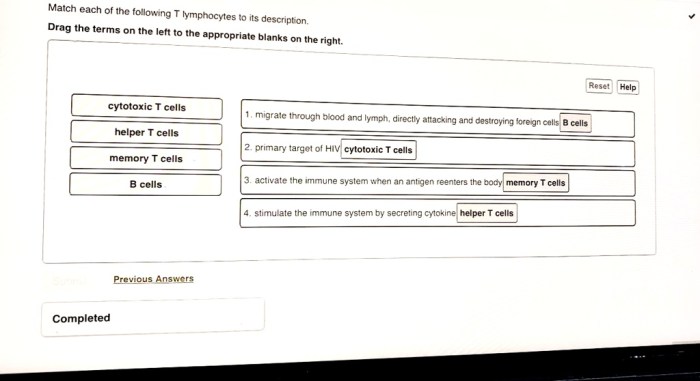Match the description with the correct type of cytokine – Cytokines are crucial signaling molecules that orchestrate immune responses. Understanding their diverse functions is essential for comprehending the intricacies of the immune system. This article presents a comprehensive guide to matching cytokine descriptions with their corresponding types, providing a solid foundation for further exploration of these essential mediators.
Cytokines encompass a wide range of molecules with distinct roles in regulating immune cell activity, inflammation, and tissue repair. Their classification into various types, based on their functions and target cells, enables a systematic understanding of their contributions to immune responses.
Overview of Cytokines

Cytokines are small proteins that are secreted by immune cells in response to infection or injury. They play a crucial role in the regulation of the immune system, mediating communication between different immune cells and coordinating their responses.
Cytokines are classified into different types based on their structure and function. The major types of cytokines include interleukins, interferons, chemokines, and tumor necrosis factors.
Types of Cytokines, Match the description with the correct type of cytokine
| Cytokine | Type | Function | Examples |
|---|---|---|---|
| Interleukin-2 (IL-2) | Interleukin | Stimulates the proliferation and differentiation of T cells | IL-1, IL-4, IL-6, IL-10 |
| Interferon-alpha (IFN-alpha) | Interferon | Inhibits viral replication | IFN-beta, IFN-gamma |
| Chemokine (C-C motif) ligand 2 (CCL2) | Chemokine | Attracts monocytes and neutrophils to the site of infection | CXCL8, CCL3, CCL4 |
| Tumor necrosis factor-alpha (TNF-alpha) | Tumor necrosis factor | Induces apoptosis in tumor cells | TNF-beta, lymphotoxin |
Clarifying Questions: Match The Description With The Correct Type Of Cytokine
What are the main types of cytokines?
Cytokines are classified into several types based on their functions and target cells, including interleukins, interferons, chemokines, and tumor necrosis factors.
How do cytokines regulate immune responses?
Cytokines act as messengers that communicate between immune cells, regulating their activation, differentiation, and effector functions.
What are the clinical applications of cytokines?
Cytokines have therapeutic potential in treating immune disorders, infectious diseases, and cancer, either by enhancing or suppressing immune responses.


